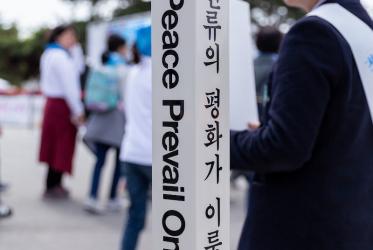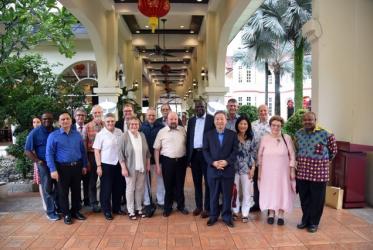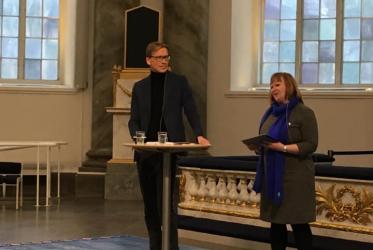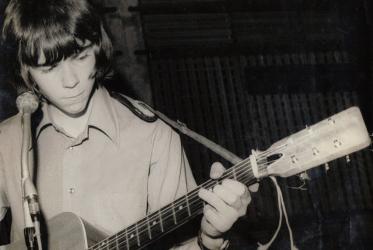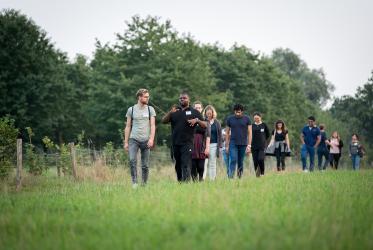Displaying 1 - 20 of 30
WCC honored with Bridge Builder Award 2021
02 July 2021
A passionate Korean feminist and ecumenist
21 August 2019
Young peoples movement strengthens influence
15 August 2019
Role of religion being questioned in public event in Norway
14 August 2019
Ecumenism is a sense of belonging
08 February 2019
#WCC70: Nathan Söderblom, ecumenical pioneer
29 August 2018
#WCC70: The life-changing gift of serving as a steward
24 August 2018
70 years in, youth pilgrimage offers room for new visions
22 August 2018
Determined to make a difference
18 April 2018
Unifying faiths in peace and harmony through dialogue
10 April 2018
WCC delegation visits China
04 January 2018
WCC students study what makes a peace communicator
18 July 2017
Pilgrimage and youth
28 June 2016
Rebuilding a smashed church in Albania
23 December 2015



